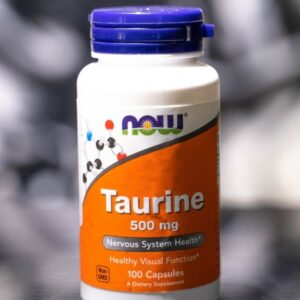Introduction
Vitamin K2, also known as menaquinone, is a lesser-known but crucial nutrient that plays a significant role in various aspects of health. While it is a lesser-known vitamin, its benefits are extensive, ranging from bone health to cardiovascular support. In this comprehensive guide, we will explore the multifaceted benefits of vitamin K2, its sources, recommended intake, and its role in maintaining overall well-being.
Understanding Vitamin K2
Vitamin K2 is one of two natural forms of vitamin K, the other being vitamin K1. While vitamin K1, found in leafy greens, is primarily associated with blood clotting, vitamin K2 plays a distinct role in the body. Its main function is to regulate calcium metabolism, ensuring that calcium is directed to the right places within the body, particularly the bones and teeth, while preventing its deposition in soft tissues like blood vessels.
The Benefits of Vitamin K2
- Bone Health: One of the most well-established benefits of vitamin K2 is its role in bone health. It activates osteocalcin, a protein responsible for binding calcium to the bone matrix. This process is essential for maintaining strong and healthy bones and preventing conditions like osteoporosis.
- Cardiovascular Health: Vitamin K2 also plays a vital role in cardiovascular health. It helps prevent the calcification of blood vessels, reducing the risk of atherosclerosis and heart disease. By directing calcium away from arterial walls and into bones, it maintains the flexibility and integrity of blood vessels.
- Dental Health: The activation of osteocalcin by vitamin K2 contributes to dental health by promoting the formation of dentin, a hard tissue that makes up a significant portion of the tooth’s structure. Adequate vitamin K2 levels can help prevent tooth decay and maintain strong teeth.
- Cognitive Health: Emerging research suggests that vitamin K2 may have a role in cognitive health. It is thought to protect against neuronal damage and oxidative stress in the brain, potentially reducing the risk of neurodegenerative diseases.
- Cancer Prevention: Some studies have indicated that vitamin K2 may have a role in cancer prevention. It appears to inhibit the growth of cancer cells and promote apoptosis, or programmed cell death, in cancer cells.
- Skin Health: Vitamin K2 is associated with skin health and may help reduce the appearance of dark circles under the eyes and other skin imperfections.
- Anti-Inflammatory Properties: Vitamin K2 has been shown to possess anti-inflammatory properties. It can help mitigate inflammation, which is a contributing factor to various chronic diseases.
Sources of Vitamin K2
Vitamin K2 is present in some animal-based and fermented foods. The two primary forms of vitamin K2 are MK-4 (menaquinone-4) and MK-7 (menaquinone-7).
- Fermented Foods: Fermented foods like natto, a Japanese soybean dish, are exceptionally rich in vitamin K2, particularly MK-7.
- Animal Products: Certain animal products, such as egg yolks, liver, and dairy, contain vitamin K2, predominantly in the MK-4 form.
- Supplements: Vitamin K2 supplements, available in various forms, are an option for those who may have limited dietary access to this nutrient.
Recommended Intake
The recommended daily intake of vitamin K2 varies depending on factors like age, sex, and specific health needs. In general, the recommended dietary allowance (RDA) for vitamin K2 is not yet established, but it is typically combined with the recommended intake for vitamin K1, which is around 120 micrograms (mcg) for adult men and 90 mcg for adult women. As research on vitamin K2 continues to evolve, more precise guidelines may emerge.
Considerations and Precautions
While vitamin K2 offers numerous health benefits, there are certain considerations to keep in mind:
- Interactions: Vitamin K2 can interact with anticoagulant medications like warfarin, as it affects blood clotting. If you are on such medications, it’s essential to consult with a healthcare provider before making significant changes to your vitamin K2 intake.
- Supplementation: If considering vitamin K2 supplementation, it’s advisable to consult a healthcare professional to determine the appropriate dosage and assess the potential benefits and risks.
- Dietary Choices: Including vitamin K2-rich foods in your diet can be an effective way to meet your nutritional needs. However, it’s important to make informed dietary choices, particularly if you have dietary restrictions or preferences.
- Balanced Diet: Achieving overall nutritional balance is key to reaping the full benefits of vitamin K2. A diet rich in a variety of nutrients, including vitamin D and calcium, complements the effects of vitamin K2 on bone health.
Conclusion
Vitamin K2 is an essential nutrient that often goes underappreciated. Its diverse range of benefits, from supporting bone and cardiovascular health to potential implications in cancer prevention and cognitive well-being, makes it a valuable component of overall nutrition. While more research is needed to fully understand the extent of its effects, existing evidence underscores the significance of ensuring adequate vitamin K2 intake through a balanced diet or supplementation, where appropriate.
As the field of nutritional science continues to evolve, vitamin K2 stands as a testament to the intricate relationship between diet and health. It emphasizes the importance of paying attention to lesser-known nutrients, as they may hold the key to addressing various health concerns and maintaining well-being across the lifespan.
- The Ultimate CBD Flower A Comprehensive Review By Botany Farms - April 2, 2024
- Comprehensive Guide to the Benefits of Vitamin K2 - November 3, 2023



